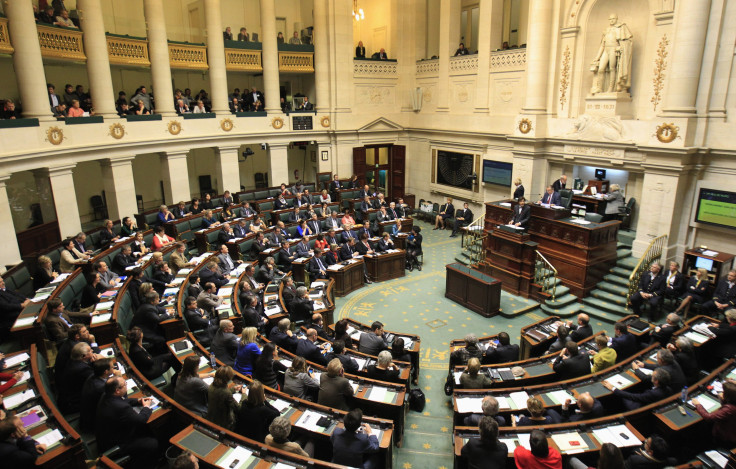Belgian Parliament Posed To Approve Child Euthanasia Law

The Belgian Federal Parliament is reportedly about to expand its controversial "right to die" policies to include access to euthanasia for some gravely ill children.
A consensus among members of the legislative body has reportedly formed in support of legislation to allow children to choose to undergo euthanasia in certain dire cases, according to a report in the Belgian daily newspaper Der Morgen, as translated by the Paris-based news agency Presseurop.
If child euthanasia is legalized in Belgium, the country would become the first in the developed world to have a law on the books allowing the practice, although the Netherlands has since 2005 not prosecuted doctors who perform euthanasia on some minors as long as the doctors act in accordance with a set of medical guidelines dubbed the Groningen Protocol.
Belgium became the second country in the world after the Netherlands to legalize euthanasia in 2002, but the statute currently extends only to people 18 or older.
The bill, introduced by the Socialist party in December, would lay out guidelines for doctors to decide on a case-by-case basis whether or not a child is mature enough to make the decision to end his or her own life, as well as whether a child's health is grave and hopeless enough to warrant euthanasia.
"The idea is to update the law to take better account of dramatic situations and extremely harrowing cases we must find a response to," Socialist party leader Thierry Giet said shortly after the bill was introduced, according to Agence France-Presse.
The Belgian Senate's Committee on Social Affairs is slated to take up the divisive proposal, which has met with strong opposition from the nation's influential Catholic clergy and members of the centrist Christian Democrats political party, on Wednesday.
"On both sides of the linguistic border, liberals and socialists appear to agree on the fact that age should not be regarded as a decisive criteria in the event of a request for euthanasia," Der Morgen wrote last week.
The decision to consider the bill follows months of testimony by medical experts, doctors, clergy members and others, and it marks a turning point in the nation's approach to the rights of young people, some of whom would be able to choose to die if the law were to pass, even while still being legally barred from driving, marrying, voting or drinking liquor until they turned 18.
The bill would also likely allow euthanasia for patients suffering from Alzheimer's and other diseases leading to advanced dementia, who may otherwise be deemed incompetent to make the decision to die. There were 1,133 cases of euthanasia recorded in Belgium in 2011, accounting for about 1 percent of the country's deaths that year, according to AFP.
Peter Deconinck, president of the Belgian medical ethics organization Reflectiegroep Biomedische Ethiek, has come out in support of expanding the practice to minors, as has the head of the intensive care unit of Fabiola Hospital in Brussels, who testified before a Belgian Senate committee.
"We all know that euthanasia is already practiced on children," he told the committee. "Yes, active euthanasia."
Though a majority of members of the Belgian Parliament are reportedly ready to pass the child euthanasia bill, Belgian Archbishop Andre-Joseph Leonard and many of the nation's Catholics are staunchly opposed to any expansion of legalized euthanasia.
"We expressed our strong reservations regarding the decriminalization of euthanasia as early as 2002," Leonard said last week, according to Der Morgen. "First and foremost because we have excellent palliative care available today, and because we can rely on sedation, to the extent strictly necessary."
The Christian Democrats may vote against the child euthanasia law, but New Flemish Alliance party members have indicated that they are willing to back the bill in order to ensure its passage, according to Der Morgen.
© Copyright IBTimes 2025. All rights reserved.





















